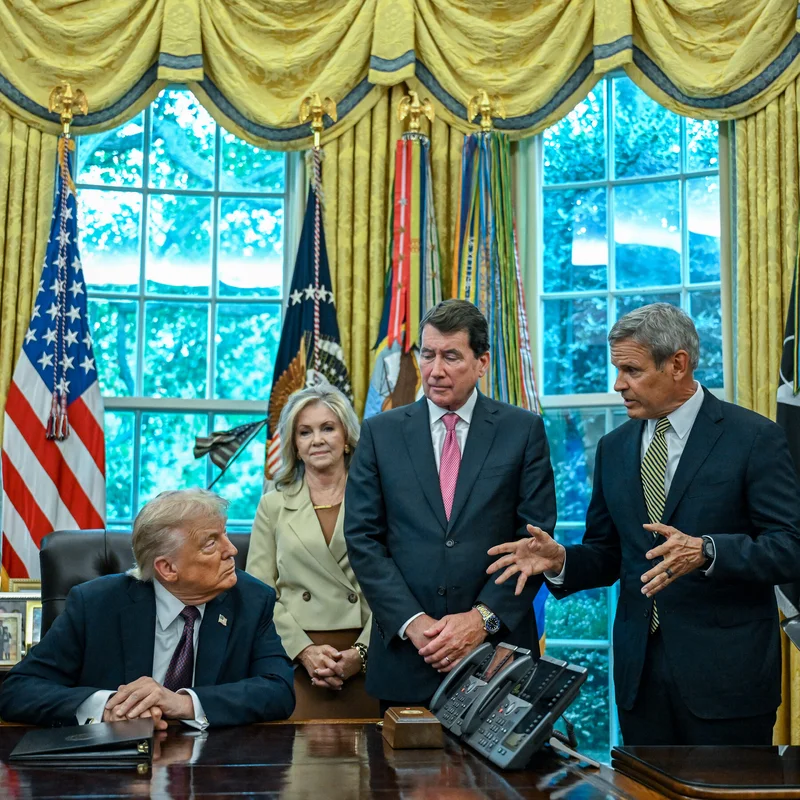In a significant escalation of federal and state efforts to address persistent violent crime, Governor Bill Lee of Tennessee announced that National Guard troops and personnel from over a dozen federal agencies will begin arriving in Memphis next week. The coordinated initiative, dubbed the Memphis Safe Task Force, aims to support local law enforcement in restoring public safety amid one of the nation’s highest violent crime rates [[1], [6], [16]].
Why Memphis? The Crime Context
Despite a reported 17.4% drop in violent crime
The overall crime rate remains high at approximately 6,860 offenses per 100,000 residents, well above the national average . This persistent challenge has prompted both state and federal intervention.
Who’s Involved? A Multi-Agency Task Force
The deployment represents an unprecedented collaboration between federal, state, and local entities. Key participants include:
- Tennessee National Guard – Providing logistical and operational support; troops will be deputized by the U.S. Marshals Service but will not carry weapons unless requested by police [[3], [18], [22]].
- Federal Bureau of Investigation (FBI)
- Bureau of Alcohol, Tobacco, Firearms and Explosives (ATF)
- U.S. Immigration and Customs Enforcement (ICE)
- U.S. Marshals Service – Responsible for deputizing National Guard personnel
- Tennessee Highway Patrol (THP)
- Memphis Police Department (MPD) – Leading on-the-ground operations
Deployment Structure at a Glance
| Agency | Primary Role | Authority Level |
|---|---|---|
| Memphis Police Department | Lead law enforcement; patrol, arrests | Local |
| Tennessee National Guard | Support roles (traffic control, logistics, surveillance) | State/Federal (deputized) |
| FBI & ATF | Federal investigations, gun trafficking, organized crime | Federal |
| U.S. Marshals | Fugitive apprehension, deputization authority | Federal |
How the Operation Will Work: A Step-by-Step Flow
🔄 Memphis Safe Task Force Operational Flow
- Intelligence Gathering – MPD and federal partners analyze crime hotspots using real-time data.
- Joint Patrol Deployment – National Guard supports MPD with visible presence in high-crime zones.
- Targeted Enforcement – FBI, ATF, and U.S. Marshals execute warrants and disrupt criminal networks.
- Community Engagement – Local leaders and law enforcement host town halls to build trust.
- Performance Review – Weekly assessments adjust tactics based on crime trends.
Controversy and Concerns
While Governor Lee frames the move as a necessary response to public safety demands, critics—including Memphis Democratic Representative Jesse Chism—have urged that National Guard troops be placed under the direct command of the Memphis Police Chief to ensure accountability and alignment with community policing goals .
Additionally, civil liberties advocates warn that militarized responses may erode trust in neighborhoods already strained by historical over-policing. The Guard’s non-arrest, support-only mandate is intended to mitigate these concerns .
What’s Next for Memphis Residents?
Residents can expect increased police and federal presence in neighborhoods like South Memphis, Orange Mound, and North Memphis—areas historically impacted by gun violence. Community briefings are scheduled for early October, and a dedicated task force hotline will launch next week.
For more on urban crime reduction strategies, see our in-depth analysis on [INTERNAL_LINK:community-policing-models].
This deployment marks one of the largest domestic security operations in recent U.S. history and reflects a broader national trend of federal intervention in local crime crises—a strategy championed by the current administration .




